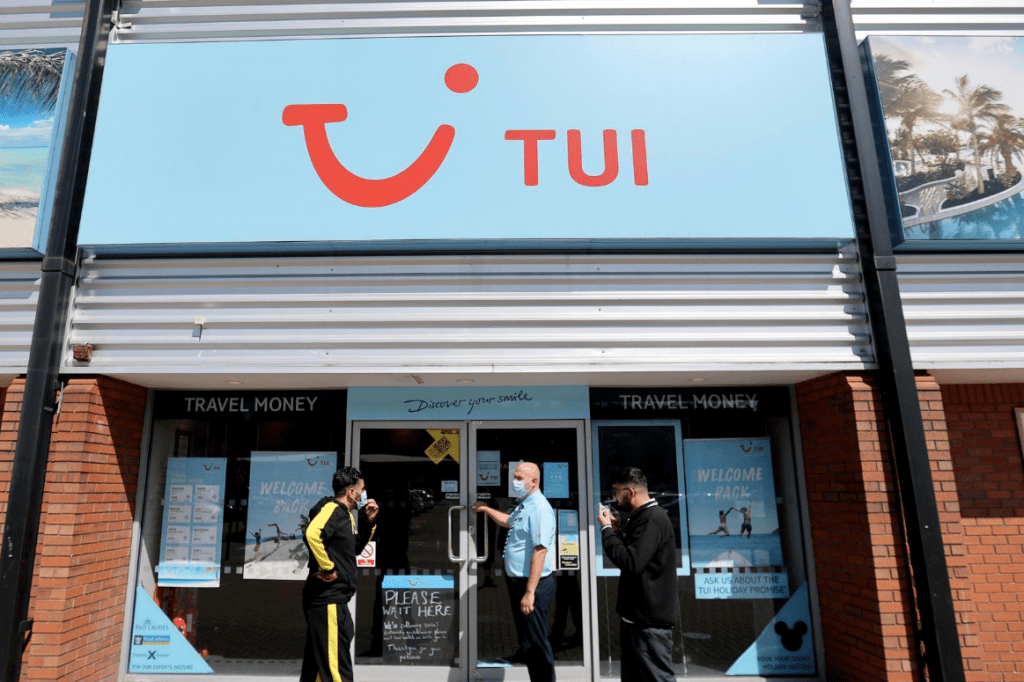Skift Take
It's got its hands on almost $6 billion so far this year, but that comes at a cost. After giving Lufthansa a substantial lifeline, the German government will likely stamp more authority on this latest rescue deal.
TUI secured a third bailout on Wednesday, striking a deal with the German government, private investors and banks for an extra $2.2 billion as the world’s largest holiday company tries to ride out the coronavirus-linked travel slump.
London-listed TUI has already received $3.6 billion in state loans this year and the latest government aid prompted calls from opposition lawmakers for Berlin to ensure that it came with strings attached.
TUI, which last year took 23 million people on holiday, lost $1.3 billion in the second quarter after the Covid-19 pandemic brought global travel to a halt.
The travel slump has wiped out TUI’s revenue and strained its balance sheet as it burned through between $666.5 million and $787.7 million a month.
TUI’s largest shareholder, Russian billionaire Alexey Mordashov, who owns 25 percent of the company, said he is expanding his investment as part of the capital measures.
Mordashov’s stake will increase to 36 percent if he gets an exemption from financial watchdog Bafin from making a mandatory takeover offer. Otherwise, he will hike it to 29.9 percent.
Including the new rescue package, TUI now has $3 billion as of the end of November, its chief executive Fritz Joussen said, adding that TUI was healthy before the crisis and now has the funds to prepare for life after the pandemic.
The package comes with a ban on management bonuses and dividends, a German economy ministry spokeswoman said.
However, budget lawmaker Sven-Christian Kindler from the opposition Greens called on the government to include strict rules on climate and job protection into the package.
“The federal government must not repeat the same mistakes it made with the Lufthansa rescue deal,” Kindler said, referring to a bailout of Germany’s flagship airline in June.
The new TUI rescue package includes a $606 million capital increase with subscription rights and a $509 million so-called silent participation from Germany’s economic support fund WSF, which can be converted into equity at any time.
It also includes a non-convertible equity hybrid from WSF worth $410 million, a state guarantee of $484.7 million, an extra $242.3 million credit facility from state bank KfW and the extension of an existing KfW facility to July 2022.
The nominal price of TUI’s shares will be reduced to €1 ($1.21) from €2.56 ($3.10), followed by a rights issues of 509 million new shares, which shareholders still need to sign off at an extraordinary general meeting in January.
Some of the proceeds will be used to repay 300 million senior notes of TUI due in October 2021.
Bank of America, Barclays, Citi and Deutsche Bank are organizing the capital hike.
(Editing by Emma Thomasson and Alexander Smith)
This article was written by Michael Nienaber, Klaus Lauer and Arno Schuetze from Reuters and was legally licensed through the Industry Dive publisher network. Please direct all licensing questions to [email protected].
The Daily Newsletter
Our daily coverage of the global travel industry. Written by editors and analysts from across Skift’s brands.
Have a confidential tip for Skift? Get in touch
Tags: coronavirus, lufthansa, tour operators, tui group
Photo credit: Tui's retail stores have been impacted by the pandemic during the second wave of lockdowns across Europe. Carl Recine / Reuters
